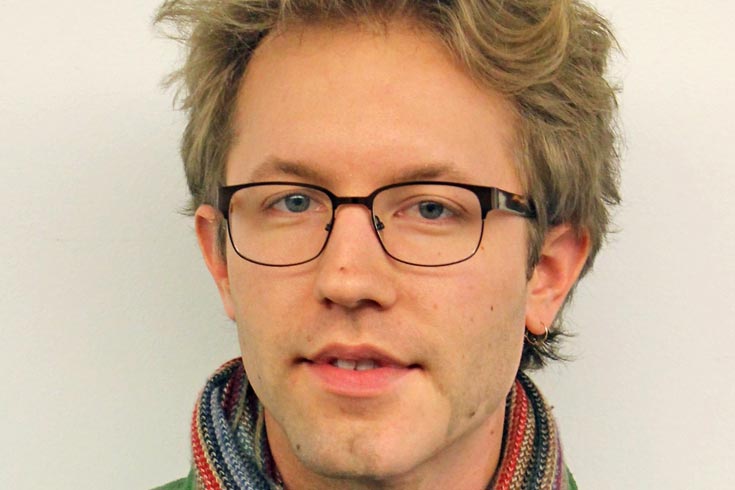Samuel Lasser, MA'14, Finds New Career Path with Computational Linguistics
 August 1, 2016
August 1, 2016
By Simon Goodacre | Graduate School of Arts and Sciences
Sam Lasser, MA’14, is a scientist at Charles River Analytics. He graduated from the master’s program in Computational Linguistics in 2014, but he had not originally intended to have a career in Computer Science or any related fields. “I was a little worried about not having enough formal or academic preparation,” he says. “It wasn't until I met my classmates that I realized there's really no such thing as a typical background for the program.”
Lasser studied English as an undergrad. He developed an interest in foreign languages after studying Mandarin Chinese while living in Taiwan. After editing foreign language textbooks at a small publishing company in Boston for several years, he decided it was time for a career change. Lasser discovered Computational Linguistics by researching related fields. “I was looking for a way to combine my interest in foreign languages with something more quantitative,” he says. “I had spent my summers during college as a math and science tutor for high school students and missed using that part of my brain.” He visited the master's program at Brandeis, and after meeting faculty and students and sitting in on classes, he decided to attend.
In preparation for his first classes, Lasser started teaching himself to program in Python using websites and online textbooks. “I wouldn't say it's necessary to learn a huge amount about coding before the start of the program,” he says. “The more important thing is to find out whether it's an activity you enjoy, because if you do enroll, you'll be doing a lot of programming over the next two years!”
Lasser took many interesting classes over the next two years, but he notes Ben Wellner's course on statistical methods in natural language processing as a highlight. “We had used certain statistical models in other courses, but it was exciting to look ‘under the hood’ and learn about how they work on a much more fundamental level.” He also enjoyed Bert Xue's Information Extraction course, which involved reading a number of influential Computational Linguistics papers and then trying to replicate or even improve upon their results. “It was a good introduction to the conversation that researchers engage in through reading and publishing papers,” he says.
During his second year in the program, Lasser was contacted by recruiters at Charles River Analytics. “I interviewed and got an internship, and I started working there full-time right after graduation,” he says. At CRA, Lasser has worked on a number of projects related to information extraction, text classification, and cybersecurity. He has the opportunity to use skills that he developed at Brandeis every single day. “Working here is similar to being a student at Brandeis in a number of ways,” he says. “The projects are interesting and research-oriented, and the atmosphere is friendly and collaborative.”
Even though he had no experience with Computer Science or Computational Linguistics coming into the program, Lasser does not regard lack of prior knowledge as a barrier. “All of us were strong in some areas and less experienced in others,” he says. “I think this diversity is one of the program's assets; I learned something from each one of my classmates.”






